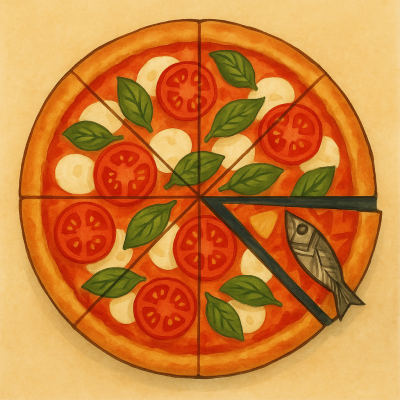 “We tend to explain others’ behaviour by their character and our own by the situation.”
“We tend to explain others’ behaviour by their character and our own by the situation.”
— Lee Ross
Imagine the following scenario: Your neighbour is taking out the garbage. You wave at your neighbour. He doesn’t wave back. Now because you’ve had a hard day, this doesn’t sit right. And in your imagination suddenly he becomes cold, rude, standoffish, or secretly harbouring a grudge about the time your recycling blew onto his lawn.
Or is he?
Let’s slow it down and look at the steps in this should-be-boring moment.
#1: You wave.
He doesn’t. Wave back.
That’s it. The whole thing. A slice of life so small it barely registers as content.
But we’re human beings and we love a good story so…
#2: The snap judgment.
Immediately your brain leaps to: He’s ignoring me. Not because it’s capital “T” True, but because it’s fast. And fast feels comforting — like grabbing a handrail on a staircase you weren’t expecting.
#3: The meaning you add.
Inside that assumption sits another: People treat me this way. I matter less to him than he matters to me. Now the story is bigger than the moment. You’ve assigned motive, emotion, and biography to a guy holding a compost bin.
(This, we remember, is the exact same guy who came over and watered your plants when you went out of town. Yet, one misunderstanding and all the years of mutual kindness can sometimes be forgotten.)
#4: The instinct you don’t notice.
Deepest inside is the uncomfortable truth: it’s easier to believe someone wronged you on purpose than to consider they simply didn’t see you. Being overlooked stings the ego. Being targeted gives you importance. Our lesser angels prefer meaning over neutrality every single time.
And here’s where things go sideways. Now you’re walking inside, muttering, texting someone about Dave “being weird again,” creating a whole miniature mythology based on a shoulder shrug of a moment. Meanwhile, Dave is chasing a garbage bag, on a call with his vet, or rescuing a raccoon from his porch. He wasn’t ignoring you. He wasn’t doing anything to you. He was just living his unremarkable life parallel to yours.
Ross’s Pizza Cutter to the Rescue
This is where Ross’s Pizza Cutter cuts through the assumptions. It reminds us to ask the one question that could save you days of emotional gymnastics:
“Is there any chance this wasn’t about me?”
Ross’s Pizza Cutter doesn’t deny the sting. It doesn’t tell you the moment didn’t hurt. It just asks you to check the size of the story you’re building on top of it.
Some people have far too much emotional fuel and not nearly enough vehicle to hold it. They ignite instantly — full volatility, no direction. One tiny moment, and they’re fully revved, peeling out emotionally with nowhere to drive. Ross’s Razor is the lane-bumper that keeps all that gasoline from becoming a house fire.
Most of the things that hurt us weren’t aimed at us. They weren’t messages, verdicts, or coded insults. They were just life happening near us — someone tired, distracted, hungry, late, stressed, thinking of something else entirely. If you treat every wobble as an attack, you end up starring in a drama the other characters don’t even know they’re in.
Or put another way,
If you’re going to cast someone in your personal tragedy, at least make sure they showed up to the audition.
Ross’s Pizza Cutter won’t make you unhurt, but it will keep you honest. It will help you separate the slice that has chicken, BBQ sauce and anchovies (Yuck!) from the sweet Hawaiian side of the pie.
It will let you taste the discomfort without assigning a villain.
And it will save your nervous system from writing forty-chapter feuds based on four seconds of missing information.
Moments are tiny.
Most moments that don’t go well are mistakes not attacks (even though they may feel awful).
Discerning mistakes from malice helps when there is malice, too. Knowing our neighbour has our back helps us cope with the co-worker who doesn’t!
And Ross’s Pizza Cutter keeps the two from getting confused.


